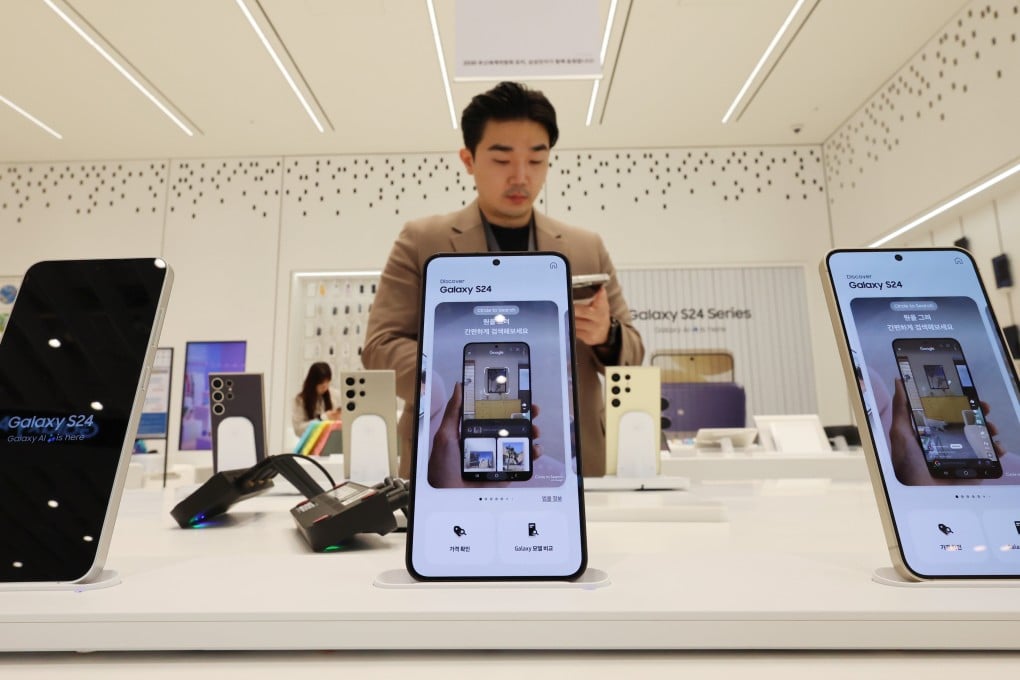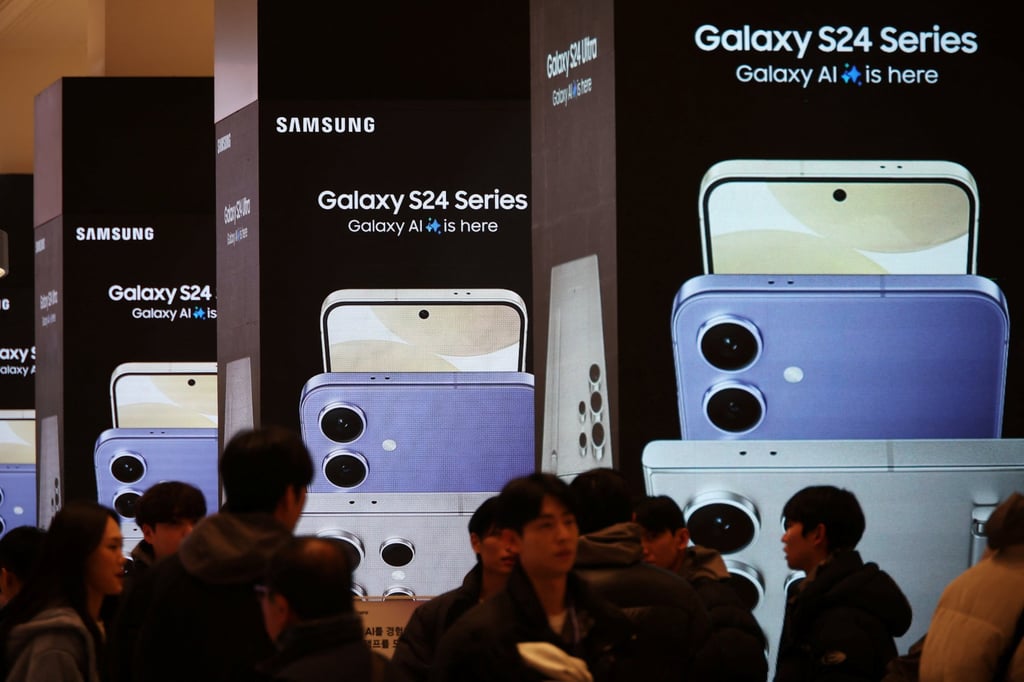Advertisement
Samsung to integrate Baidu’s AI model into new Galaxy S24 handsets, as mainland Chinese rivals push new smartphones with similar tech
- Samsung’s Galaxy S24 series smartphones will deploy Baidu’s Ernie AI model to perform the handsets’ new ‘Circle of Search’ feature
- Ernie will also help users translate and summarise texts, as well as transcribe speech in multiple languages via the Note Assistant function
Reading Time:2 minutes
Why you can trust SCMP
4

Iris Dengin Shenzhen
Samsung Electronics has teamed up with Baidu to integrate the Chinese internet giant’s large language model (LLM) – the technology behind chatbots like ChatGPT – into the South Korean company’s latest flagship 5G device, marking a renewed push into the world’s largest smartphone market where domestic rivals are set to launch handsets with artificial intelligence (AI) features.
Under a strategic partnership between Samsung’s China arm and Baidu AI Cloud, the recently unveiled Galaxy S24 series will deploy the Ernie LLM to perform the handset’s new “Circle to Search” feature that enables users on the mainland to search texts, images or videos via hand gestures, with results provided by the Chinese online search and AI firm, according to an announcement on Thursday.
Ernie will also help users translate and summarise texts, as well as transcribe speech in multiple languages via the Note Assistant function, according to Baidu.
Advertisement
Globally, Samsung has tapped Google’s Gemini AI technology to power its new AI-enabled 5G smartphones under a multi-year partnership announced last week. In mainland China, however, both Google and OpenAI’s models are not available, which prompted the Korean electronics giant to rely on a domestic AI partner to keep its new handsets competitive on the mainland.

The stakes are high for both Samsung and Baidu as global shipments of generative AI-powered smartphones are projected to reach more than 100 million units this year and grow rapidly to 522 million in 2027, according to a recent report by Counterpoint Research.
Advertisement
Advertisement
Select Voice
Choose your listening speed
Get through articles 2x faster
1.25x
250 WPM
Slow
Average
Fast
1.25x